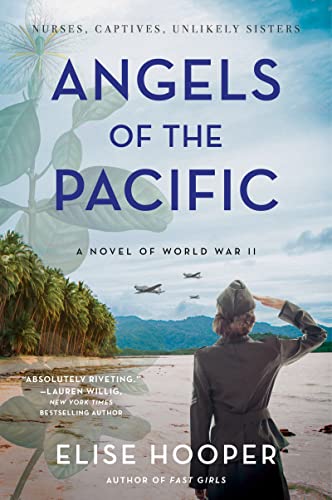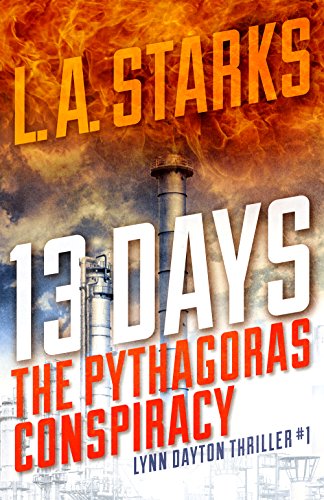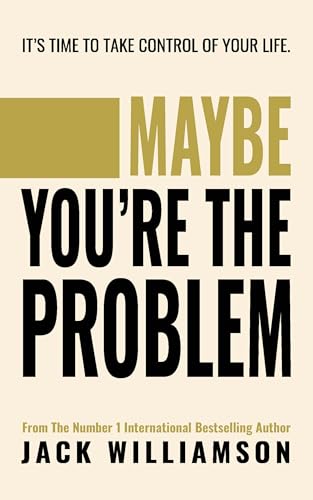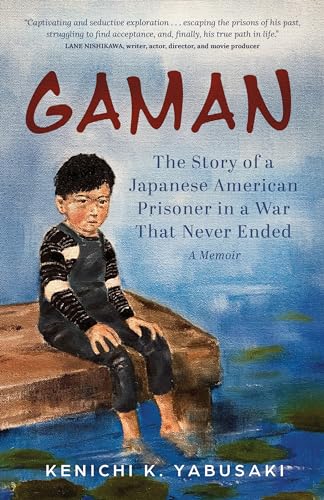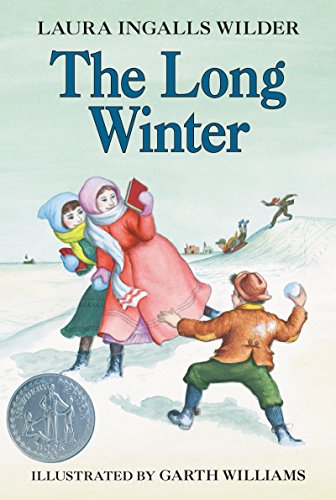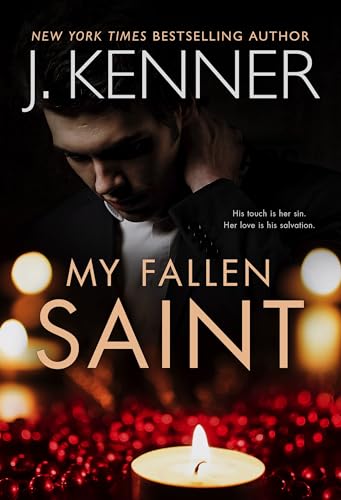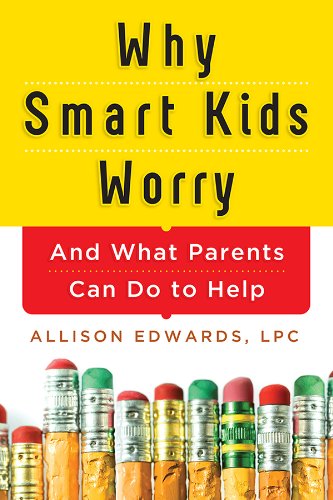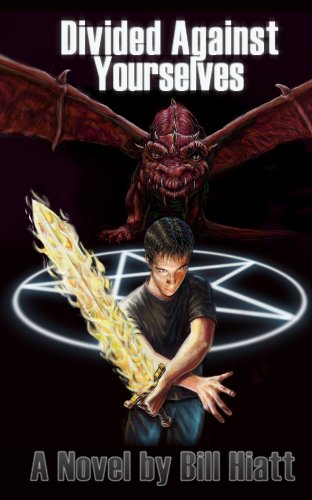in New Adult Romance
and
Coming of Age Fiction
comes the second book of her wildly popular Ruin series — new adult romance at its best.You met the handsome and mysterious Gabe in Book I. Now find out the rest of his story in TOXIC, a romantic, deeply emotional novel of secrets and redemption.
Everyone has a secret…
Gabe Hyde is on borrowed time. He’s been hiding his identity for over four years–hidden from the world that used to adore him–obsess over him–driven to the edge of insanity by one poor choice. But that one choice, altered the course of his life forever. Pretending isn’t all it’s cracked up to be, especially when pretending means hiding your real self from the people that care about you the most. But if anyone ever discovered the truth it wouldn’t just be his life at risk–but hers.Saylor doesn’t hate men. Just Gabe. Only Gabe. He’s a reckless, happy-go-lucky, silver spoon fed pain in her ass. Everything about him makes her more and more confused. Unfortunately they both donate time at the same Group Home. If she wasn’t afraid of flunking, she’d be long gone.
She hates that she’s attracted to him almost as much as he hates that he’s attracted to her–and she can tell, especially since their first encounter ended up making her knees so weak she couldn’t form coherent sentences for weeks afterwards. But the closer she gets to him, the more confused she becomes. He isn’t who he says he is, and he’s hiding something big.
What happen when two worlds collide? Two worlds that never should have met in the first place? Some secrets are too big to be hidden forever–the only question? Will his destroy everyone he loves? Or finally bring about the redemption he’s been craving for the past four years?
Everyone has a secret…What’s yours?
5-star praise for TOXIC:
“Rachel Van Dyken delivers a STELLAR book in this series…[Gabe] has had a painful and damaging past that rips your heart out. But to see this tortured soul reform and find peace was so beautiful. The love story Rachel gives us is an amazing one…”
an excerpt from
Toxic
by Rachel Van Dyken
Prologue
The end of Spring Semester
I would have followed her anywhere.
It’s funny isn’t it? People claim to know what love is — yet the minute they’re given the opportunity to prove it — they bail.
I wish I could have bailed. I wish I could have walked away four years ago. Then maybe I’d have the strength to walk away now. To look her in the eyes and say, “Sorry, but I can’t do this again.”
People rarely mean what they say. To me, sorry was just another word in the English language that people misused — like love.
I love ice cream, I love pancakes, I love the color blue — bullshit. Because when I said love — I meant I bled for you. When the word love actually leaves my lips — I’m speaking it into existence. I’m empowering my soul — I’m joining with yours.
I’d always heard about crossroads, how people are given choices in their lives, choices that either make or break them. I never realized that I’d be given that second chance; I never realized I’d fail to take it.
Her eyes pleaded with mine. My heart shattered in my chest, my lips moved to speak — to say anything to get her to understand the depth of what I was feeling, but I knew the minute I told her how I felt — it would be all over.
My heart, my soul, it couldn’t survive anything happening to her. If she wasn’t in my world, my heart would stop. I knew it was killing her — because it was destroying me.
But going back to that life.
Even for her.
Was out of the question.
Falling in love, jumping out, even knowing full well that she’d catch me. It wasn’t an option. Because everyone knows, when it comes to love, it’s not the fall that hurts… it’s the landing. And I knew it was only matter of time before she gave up on me too and allowed me to break.
Because in the end… that’s all I was — broken. A shell of a human.
“I don’t understand!” She beat against my chest with her fists. “You promised me! You promised you’d never leave!” Tears streamed down her face, the face I used to love. I closed my eyes then looked behind me as Saylor clenched the keys in her hand, waiting for my decision.
I was at a crossroads all right. One path led to my future — the other to my past and utter self destruction.
I couldn’t look at her. I ignored every thread of feeling — and relished the pain of my heart breaking into a million pieces as I held out my hand in front of me. “You’re right, I promised.”
“Gabe!” Saylor yelled from behind me. “It doesn’t have to be like this.”
“Don’t you see?” I said quietly without turning around. “It’s always been like this, it will always be like this. I warned you.”
“But—”
“Enough!” I yelled, tears threatening to stream down my face. “I said enough. You should go.”
Behind me, the door slammed.
“It’s okay!” she said, cupping my face. “It will finally be okay!”
“Alright, Princess.” I choked on the word. “Alright.” I tightened the pink scarf around her neck and put my arm around her.
“Thanks.” She sighed happily. “You always promised you’d take care of me. You can’t leave, you can’t—”
“I won’t.” I vowed, because it was my fault. Just like everything else.
“Can we go play now, Gabe?”
“Yeah, sweetheart, we can.” I folded the blanket around her legs and pushed her wheelchair out of the room, knowing full well that I was choosing the wrong path — with every step I took.
Chapter One
Sad moment officially gone, just please, for the love of God, get a room —Gabe H.
Gabe
Middle of Spring Semester
“Focus, Kiersten.” I snapped my fingers in front of her face. “Stages of mitosis. Go.”
We’d been sitting at the local Starbucks all morning. The smell of ground coffee was beginning to make me sick — I had nobody to blame but myself. Apparently ground coffee is what a new leaf smelled like. And I’d officially turned one over.
Kierten’s eyes darted to the textbook. I scooted it away and waited patiently, folding my hands on the table.
Her mouth dropped open to answer, a blank stare followed and then a groan. “G-a-a-a-a-be.” She smiled. “Can’t we take a coffee break? Please?”
“Don’t stick out your lower lip.”
She stuck it out anyway.
“Kiersten…” I warned.
“Please!” She gripped my hands in hers and pouted some more.
I gave in with a heavy sigh — you know, to show that I wasn’t happy about giving in to her demands even though that’s how it always was with our friendship. She said jump and I said where, how high, how long, and how fast can I do your bidding? “Fine, we’ll take a coffee break.”
“Yes!” She slammed the book shut. “My turn to treat.” Her ridiculously cute smile made me laugh. Hell, she always made me laugh, and I so needed to laugh at this point in my life. Besides, if I didn’t laugh I was pretty sure I’d break down sobbing and the last thing the world needed was for me to suddenly make sure everyone was aware that I had feelings.
Damn, I didn’t even want to be aware.
“Nope.” I waved her off then had to physically restrain her from hopping off toward the counter. “I got it. Plus, Wes would kill me if he knew I made you pay for your own coffee.”
“You guys spoil me too much.” She sat back against her chair and crossed her arms. “You’re going to have to let me go soon, Gabe. Both you and Wolf,” she said, using Wes’s nickname. “I can’t live in your protective bubble forever.” She yawned and accidently hit her hand on the wall beside her.
“Aw, little Lamb,” I teased, using Wes’s nickname for her. “Get a boo-boo?”
“Shut it.”
“I’ll just go get your coffee.”
Her eyes narrowed. “You do that, Turtle.”
If she was a dude, I would have flipped her off. Instead, I laughed and walked away.
I’d been making fun of her and Wes’s nicknames for each other — Lamb and Wolf — and in return had been gifted with one of my own, on account of my idiot cousin, Lisa, deciding to tell them the story about how I’d had a pet turtle when I was little and had cried when it died.
But come on! That turtle was bad ass! I had a freaking funeral for the little guy — I full on wept.
Not a proud moment.
“The usual?” I called back.
She folded her hands in front of her like she was praying and shouted, “Please!”
With a smile I turned around and went to stand in line — trying to look casual, easy-going, normal. Ha! Funny how I used to actually practice being normal.
I’d looked in the mirror and had to tell myself to visibly relax my lips, shoulders, muscles. I had to own the look because things had been crazy for so long — and apparently I had a certain way of walking that made people recognize me. Who knew, right? At any rate, I was a bad ass ninja master of disguise, and it wasn’t just my life that depended on it, but hers as well.
Maybe it was my graduation — but ever since the start of this last semester I’d felt edgy — irritated, as if I was some sorry ass sitting outside waiting for a storm cloud. I had no reason to feel that way — I just did, and honestly? It freaked me out a bit. I hoped it was just a side effect of not sleeping around with every single girl on campus. Maybe that was what not having sex did to guys… made them paranoid and jumpy as hell.
“What can I get you?” The barista asked, her demeanor cool, aloof.
I leaned forward and smiled brightly. “That depends, what are you offering?”
“Damn.” She snapped her fingers. “You confused? The sex shop is just down the street.” With a wink, she leaned forward and whispered, “We serve coffee here.”
“How…” I licked my lips slowly, falling easily back into old habits. “…embarrassing.” My heart started to race as I greedily scanned her tight little body, just barely hidden by the green apron. It was my game — the only thing I had going for me. The only thing that numbed me to my past — to everything. Don’t feel sorry for me. I loved every damn minute of it — because it was one more minute I wasn’t thinking about the past.
The past, the past, the past. Ah, there it was, the reason I kept it in my pants now. My promise to Wes, and worse — my promise to myself. She wouldn’t want me to be this way — I was torn between feeling guilty about how I acted and also feeling relieved that at least there was still something that choked the sadness away from my existence.
“It happens,” she replied breathlessly, her eyes widening as she took in my body. I was used to it. I lived for it. I survived on it.
And then, she flipped her hair.
A whiff of perfume hit me square in the face, shaking off any sort of lust I had going for me.
Shit. It was the same perfume.
Shaking, I jerked back forcing a weak laugh. “Anyways, um, can we just have two large caramel lattes? Triple shot and put extra whipped cream on one of them.”
“Oh.” The girl’s face went completely red as she typed in the order and shook her head. “Is that all?”
Her voice was pitifully hopeful.
But I’d already made up my mind.
Or maybe it was my body that was made up first, then my mind. Either way, I felt like puking, like running outside and not stopping until I was either in the music room or on my Harley.
“Yup.” I handed her my credit card, my fingers tensing around the sharp edges of the plastic. “That’s all.”
She swiped, handed it back, muttered asshole under her breath, and I walked around to wait for the cups and make sure she didn’t spit in anything before our coffee made it into my hands.
Within minutes I had our coffee and was already sitting back at the table.
“So…” Kiersten took a slow sip. “How’s life?”
I rolled my eyes. “Can we not do this?”
“Do what?” She shrugged innocently.
“The whole you ask me how I’m doing over and over again and just pray I’ll crack or worse yet, start crying and spouting out all my dirty—” I leaned in. “Little.” I leaned in a bit more “Secrets.”
“Your sex eyes don’t work on me,” Kiersten said, her voice sounding bored as hell.
I shrugged helplessly and took a long sip of coffee. “Worth a shot.”
“Worth getting shot?” Kiersten corrected. “Because that’s what would happen. Wes would shoot you.”
“Wes hates violence,” I defended.
“No, he doesn’t hate it.” Kiersten laughed and looked to the door. “Oh my gosh… is that her?”
“Her who?” Kiersten knew I didn’t do names — I rarely recognized the girls I slept with unless they walked up to me with their shirts lifted over their heads. Okay fine, so it wasn’t that bad, but pretty damn close. I swear it was easier to tell people apart that way.
“Raylynn.” Kiersten lowered her voice. “That’s her!”
“Don’t call her over,” I mumbled under my breath. That bitch was psycho. I slept with her once. One time! And she all but stalked me for three months! Kiersten had really liked her and thought she was pretty; therefore, my opinion didn’t matter. And nothing would make Kiersten happier than to see me settle down and stop whoring around, or so she told me every few days when she felt the urge to mama-bear me. Little did she know it had been months, which felt like years, decades… Oh, hell. Who was I kidding? It felt like death.
“Oh look, she sees me!” Kiersten said happily.
“I wonder if it’s because you’re waving.”
“Stretching.”
“Waving.”
“Raylynn!” Kiersten said in a cheerful voice that sounded like she was a cheerleader in another life. “How have you been?”
“Good.”
All eyes turned to me.
I stared into my coffee. Kiersten kicked me under the table. With a curse I looked up and said, “Yo.”
“Yo?” Kiersten mouthed across the table.
“Er, hi.” Raylynn blushed.
Damn it.
Her pale complexion and bright blonde hair did nothing to hide the fact that she was embarrassed.
I tried again. “How have you been?”
“Busy.” She cleared her throat, her eyes darting between me and my coffee as if waiting for me to ask her to sit down or worse yet, ask her on another date.
And dead silence. Again. I suddenly experienced the exact definition of a pregnant pause.
“Well…” Kiersten cleared her throat loudly then kicked me under the table. “It was great seeing you!”
“You too.” Raylynn looked at me one last time then, shoulders slumping, walked off.
“You ass!” Kiersten kicked my shin again. “And yo? Did you say yo? No one as white as you should ever say that word. Ever. I don’t care if you get kidnapped and the only way to be free is to either say yo or gnaw your own arm off. Gnaw the arm, Gabe. Don’t say…yo.”
“Who said yo?” a male voice interrupted.
“Ah, Wolf.” I teased, happy that I wasn’t alone anymore with Kiersten’s peering eyes and difficult questions.
“Turtle,” he fired back.
“Gabe said yo.”
“Out loud?” Wes all but shouted. “Is he trying to get jumped?”
I groaned into my hands and waited for them to stop talking about me like I wasn’t there.
It was a regular occurrence with them. Kiersten would say something like I’m worried about Gabe, then Wes would say, Is he not eating? and I’d raise my hand and say, He’s just fine, he ate a burrito a half hour ago.
“Guys!” I snapped, and dropped my hands to the table. “I’m fine, everything is fine. I said yo, I’m gangster, deal with it.”
They both stared at me as if I’d just announced I was going to be a monk.
“I heard something this morning.” Wes reached for Kiersten’s coffee and took a long sip then leaned back against the chair. If I wasn’t his best friend I’d effing hate him. He was the ideal All American Football Star. Quarterback, dark blond hair, blue eyes, buff, easy going. Yup, I’d freaking hate him.
“Oh yeah?” My eyes narrowed. “Tell me, Gossip Girl, what did you hear?” I took a long sip of coffee.
“Dry spell.”
I spit out the coffee onto the table and all but choked to death. Damn Lisa, damn family, damn cousin. “I have no idea what you’re referring to.”
“Right.” Wes licked his lips but dropped it. He leaned over and kissed Kiersten on the top of her head, then pulled her silky scarf tighter around her body.
That simple motion — almost made me lose it.
The tightening of a scarf — made me want to end my own life. If people only knew — if only I could trust people enough to tell, to explain, how wrecked I was on the inside.
But no. I was playing a part. I was Gabe. I would never be him again, I would never be my past again.
Kiersten laughed and kissed Wes’s nose.
It was too much. Everything was suddenly too much, and in that moment I knew. It was too much four years ago — my time was up. The storm cloud was coming. “Look guys, I gotta run.”
“Alright.” Kiersten barely took her eyes off Wes. “See you for Taco Tuesday?”
“Yup.” I didn’t turn around. I didn’t wave. I grabbed my shit, and I ran out that door like the fires of hell were licking at my heels.
Because for the first time in four years — the time bomb was about to go off and I wasn’t so sure how I was going to handle everything.
My phone went off with a text.
Puget Sound N: She needs you. Can you call and sing? Or maybe send her a picture text?
Oh look, the bomb… it was ticking.
Me: Yeah. I’ll call in a few.
Chapter Two
People will go through their entire lives justifying every damn decision…they’ll fight for all the wrong things, until finally the right thing stares at them square in the face. That’s when the choices start to matter. Because in the end, you’re a creature of habit. So you may want to choose right, but choose wrong in the end — because you’re so damn used to it. It’s tragic, then again, life’s tragic, don’t you think? –Wes Michels
Gabe
“The dry spell’s really getting to you, isn’t it?” Lisa felt my forehead.
I smacked her hand away and rolled my eyes.
“You can’t call it a dry spell when it’s by choice,” I grumbled. “And by the way, thanks for telling Wes.” I’d run out of the Starbucks and headed directly to Lisa’s dorm room in hopes of talking to her about everything. Instead, she’d answered the door, her sweet smile conveying without words that she would always be there for me and she’d always understand.
Except this time — I had refused to burden her.
I looked at her now, several days after making that decision, and realized that had been our entire relationship. I give you my pain, you give me yours. And I was sick of it. I hated that she was part of it, and I hated that for the first time in four years I’d finally decided to grow a pair of balls and leave her the hell out of it — she didn’t deserve the darkness.
I, however, did.
“And cranky.” She plopped down onto the couch and messed up my hair with her hands. “You need to get out more.”
“Question.” I put the TV on mute and pushed her away. “Weren’t you telling me a few weeks ago that I was going either going to die alone or from too many STDs?”
Lisa’s blue eyes twinkled in amusement as she snatched the remote and turned the volume back up “Don’t be dramatic. I said you were going to die alone with STD’s.” She flipped her dark wavy hair over her shoulder and laughed.
“Right. Big difference, awesome encouragement. Cousin of the year.” I groaned and leaned back against the couch. I was just getting comfortable when a pillow hit me in the face.
Swearing a blue streak, I jumped to my feet.
Wes held out the pillow and tilted his head. “Rough morning? Where’d you go anyways?”
“Dude.” I croaked and just shook my head. Not him, not again. I was cracking.
The door to the dorm opened, revealing a tuckered out Kiersten. She was sweating like crazy, so I could only assume Wes made her workout with him after our morning study session. Swear, they did everything together, practically lived together since they’d gotten engaged. I didn’t mind — correction I didn’t mind that much, but the PDA was getting a little tiring. Case in point — today at the coffee shop I probably escaped right before he swallowed her whole.
“You look like someone just died,” Kiersten joked coming up alongside Wes and leaning against him.
Damn. Perfect-looking couple. They’d have beautiful kids. Wow, I’ve completely lost my shit. Was I really thinking about them procreating? And getting emotional about it? Oh look, there’s something in my eye. A freaking tear. Hell, I needed to get out.
“Hah.” My eyes narrowed. “Still too soon.”
“Damn, no death jokes?” Wes laughed and pulled a sweaty Kiersten into his arms, attacking her mouth with such force that I, Gabe Hyde, slut of the year, felt like blushing.
“Guys, not here by the food.” I pointed to the fruit on the table. “It’s weird.”
“Making out next to bananas?” Wes pulled away from Kiersten. “Really, man? Coming from you? Seriously, what’s wrong with you?”
The room fell silent. Great. Perfect. I shrugged and forced a smile. “Oh, you know, my demented cousin claims it’s a dry spell.”
“Right.” Wes snapped his fingers. “I almost forgot about that fun little piece of information.”
“For the last time!” I all but yelled. “It’s not a dry spell if it’s by choice!” I rarely yelled. Everyone stared at me like I’d just lost my shit. I was a lover not a fighter. The slutty flirt that slept with anything it could. The guy who could charm the pants off a federal judge. Yelling? Anger? Yeah… I bit my lower lip and scowled at the floor. Tick-tock, tick-tock. I really was losing it.
“Right.” Wes’s eyes narrowed. “Hey, uh, Gabe, I need help with something. Can you come with me to my room real quick?”
“Sure,” I said slowly, my eyes darting between him and Kiersten. She pretended to be totally oblivious to the tension between me and Wes.
“See ya, at dinner, Wes.” She kissed his cheek and skipped into her room slamming the door behind her.
“Use protection.” Lisa called after Wes and me once we reached the door.
“Hilarious!” I yelled above her laughter.
We walked in silence to Wes’s room. Why did I suddenly feel like I was about to get a dad lecture? I was sweating. What the hell!
The elevator was silent as it made its way to the sixth floor. You could hear a pin drop. I followed Wes down the hall and finally into his room.
Even though he’d gone through cancer treatments at the beginning of last year, they still allowed him to stay as Freshman RA, so at least I knew we wouldn’t have roommates barging in on us while he laid into me about raising my voice around girls.
Once we were inside, he shut the door, locked it, and threw one of his footballs at my face.
“Why?” I ducked. He threw another one. I barely caught it before it smashed into my nose. “What the hell, Wes!”
“Finally!” He all but shouted. “A reaction. You’re like a freaking zombie. What gives? And don’t lie. Kiersten said you were acting weird this morning too.”
I yawned, attempting to look bored, even though my palms were sweating something fierce. “Nothing, man, just school stuff.”
“School stuff?” Wes repeated. “You really wanna go with that excuse?”
“Drugs?” I offered.
He snorted. “Yeah, right.”
“Jackass.”
“Whore.”
“Wes—”
“What?” He took a seat by his desk and crossed his arms. “What’s going on?”
I didn’t spill my guts. I knew I owed him everything — hell, I felt like he practically saved my life when he almost died, he made me feel like living again. His strength was like gravity, pulling everyone within a fifty-mile radius into its center. You couldn’t help but want to be better when you were around him, and that was the problem.
“I’m aging man, and we both know cancer can come back at any time.”
“Seriously!” I threw the football back at his face. “This is what I’m talking about!”
“What?” He caught the football and twirled it in the air. “Speak up, I can’t hear you.”
I groaned into my hands, “You’re so damn perfect. It really is irritating as hell.”
“Thanks.” He flashed a smile.
“I’m serious.”
“I know.”
I groaned again.
“Gabe—”
I reached into my pocket — the locket was cold against my fingertips. “Have you ever messed up so bad that—”
“That what?”
I averted my gaze. “I just… you’re my best friend, don’t get me wrong, but I feel like you never do anything terrible. You’re smarter than most therapists, you have tons of money, you’re like a freaking god around this place… Oh right, and a walking miracle. Check all those off the list. I know life hasn’t been easy for you, but you don’t mess up, you roll with the punches and move on. I just wish I knew how to do that.”
Wes laughed out loud. “Wow, a little freaked out that your opinion of me is that high. Do I really need to make a list of all the times I’ve screwed up in life?”
“It would help,” I grumbled, crossing my arms.
A few seconds of utter and complete silence went by. I didn’t mind though. Wes and I were like that. We didn’t always have to be talking or arguing or laughing. Sometimes silence was what I needed most and he knew that about me. He knew more than anyone — even Lisa. And I had a sneaking suspicion he knew every damn part I played was an act.
“What’s really going on?”
“The weight.” I cursed. “It’s wrapped around my legs, pulling me deeper into the darkest depths of the ocean and for once, I want to let it.”
“Why?”
My head snapped up. Wes’s eyes didn’t hold judgment, just concern. “Because I deserve to sink.”
“Doesn’t everyone?”
“No, you don’t get it.” I got up and started pacing. “You know how you always felt like nobody understood? Remember when you said you’d drink shitty coffee the rest of your life if you could just live? Remember all those talks about people just walking through life without a damn clue about your pain? Your journey?”
Wes nodded.
I started to sweat. I gripped the locket harder until it had to be making an imprint onto my fingertips. “How does a person deserve life?”
“Trick question,” Wes answered softly. “We don’t.”
My phone simultanously buzzed and sounded in my pocket, interrupting our talk. It was my mom’s ringtone — she’d called at least five times in the last hour. I knew I should probably talk to her, but it just brought up too many bad memories. And, I was officially late for class.
I stabbed at the ignore button and grimaced at Wes. “Listen, I gotta go. Can we talk later?”
Wes waved me off. “Of course, just don’t go jumping off any buildings or sleeping with the entire swim team again and we’ll be good.”
I rolled my eyes. “Later.”
“And don’t forget Taco Tuesday!” he yelled as the door slammed shut behind me.
Chapter Three
My reflection was foreign… I didn’t even remember myself — the guy I was. I’d been living with that damn mask for so long that I’d completely lost it — all of it. Thank God. —Gabe H.
Gabe
I made my way to class. It was a bit of a trek — UW was a huge school and on any other day I probably would have ridden my Harley, but I needed the walk. I could only hope it would clear my head.
As I crossed the street, a prickling awareness wrapped itself around me. I stopped walking toward the business building and looked behind me. Nothing. Just people walking back and forth, talking, smoking, laughing — all of them in their own little worlds. I liked it that way. Really. I’d only had a few close calls over the course of the last few years, and now that I was graduating in a few months, I was almost home free.
I’d wanted to go to school — I’d needed normal more than I’d needed money, excitement, all of it. My parents hadn’t understood. Then again, they didn’t understand anything that didn’t have to do with what they wanted for my life. How could they not get that the reason I almost died and ruined my life was because they wanted me to be something I wasn’t? I laughed out loud and stuffed my hands into my jeans pockets to caress the cool metal locket. Each year I’d gone back to LA with a different tattoo. The next more offensive than the last. When I pierced my nose I think my mom about had a heart attack. Dad all but disowned me.
Pity. I would have liked to be disowned.
Lisa always warned me not to push them too far — she was afraid I might be tattled on. All it would take would be for my dad to announce my secrets to the media and I’d be done for. The secrets? My past? Front page news. The life I’d built? Changed forever.
I swallowed the fear and continued walking toward the building. Two months until school ended, and then I could start my own life, away from my family, away from the painful memories, and away from the man I used to be.
I felt better once I stepped into the old building. Homework was something I could focus on… I might look like I was part of some punk rock band, but I had straight A’s for a reason. I needed to be successful in order to get the hell out from underneath my family’s grasp. I could almost feel their hands wrapping around my neck, choking the life out of me just like before.
I jumped when my phone buzzed in my pocket. I quickly answered it and leaned against the wall, closing my eyes as my heart clattered against my chest.
I needed to get it together — fast.
“Hey!” Lisa said from the other line. “What’cha doin?”
“Going to class like a good boy. Why? Are you in trouble?”
Lisa rarely called me during the day unless she needed a ride… or food… or… Okay fine, so she called me all the time. It just felt lame that she was one of my only friends.
“Nah.” She cleared her throat. “I, um, I just thought you should hear it from me.”
“Hear it?” I repeated. “Hear what?”
“My mom called.” She paused.
“Lisa, what the hell? Just spit it out,” I growled, trying to sound annoyed, when really I was terrified of the news Lisa was going to tell me. I hated fear. It made me feel weak. And weakness was a close second on the list of things I never wanted to feel again.
“Your father… he’s…” She took a deep breath then finished in a rush. “He’s gotten into some financial trouble… nothing huge. I mean, he can’t touch your trust found, but well, my mom talked to your mom, and she’s worried he’s going to sell your story to the media for money.”
My heartbeat roared in my ears, adrenaline surged through my body as I looked wildly around me — for him, for cameras, for reporters. Shit, I was going to be sick. My hand started trembling so bad that the phone clamored against my ear. My entire body went cold. Shaking, I scanned the area again and stepped into the shadow of the building. “Sorry, Lisa. Thanks for letting me know, but I gotta go, I gotta—” I hung up and started running. I wasn’t even sure in what direction I was going. I could have hit a tree for all I cared. My legs pumped harder and harder as the cold air hit my face. I could still feel them chasing me. I could taste the blood in my mouth from biting my tongue.
“Was it an accident?” the reporter asked. “You’re over eighteen. Do you think you’ll be held responsible?” She lifted the microphone in my face and waited.
I looked around for help.
No one.
Who was I kidding? Nobody was going to help me. She was gone.
“Um, no, no comment,” I stuttered.
“Is that your answer for everything?” a male reporter fired out.
I stared into his cold black eyes and nodded. “For now it is.”
“Shit! Shit! Shit!” I ran my hands through my hair and slowed down as I made my way back toward the dorms. What the hell could I give him to keep him from going to press? I had money but couldn’t access all of it until I was twenty-two, which wasn’t for another four months. I got a monthly stipend of five grand a month. I could take my money out of all my investments but would that solve anything? Would he ever stop? I could give him everything I had, which was roughly ten mill, and he’d probably still find a way to spend it all and come after me. It wasn’t the money. I wasn’t stupid. I was his cash cow. He was still pissed I’d walked away.
Funny. Dad hadn’t been upset that my squeaky clean image had been wrecked by drug usage, drinking, and the horror that followed. He was pissed that I’d run, that I’d given up what was, in his estimation, a gold mine.
I jogged past my dorm.
And jumped onto my old Harley. I needed out — an escape. Drugs were out of the question — which left only one thing.
I rode as hard as I could toward the music building. My bike almost fell over as I parked it and ran up the stairs to one of the private rooms. Once inside I locked the door behind me, pulled the blinds down, and sat at the piano.
My heart pounded in my chest as the ivory keys stared back at me — called to me.
My addiction.
Four years.
I’d stayed away from the piano for four damn years.
Not anymore.
The bomb went off, the timer dinged, my hands caressed the piano. I groaned aloud and slumped onto the wooden bench, my body taking its natural position over the instrument.
I wasn’t even sure I knew how to play anymore — how to sing — how to communicate what was eating up my soul — slowly poisoning me.
But I had to try.
The minute I pressed the keys, need poured out until my shaking hands were hovering over the piano, and before I could stop myself, I started playing. I played the songs of my teen years, and then finally — as if my hands couldn’t keep themselves from playing the melody — I played her song.
A strange sort of madness washed over me as I pounded harder and harder. Maybe if I played hard enough she’d come back, maybe I’d get a redo and the last four years would be nothing more than a horrible nightmare.
I fought tears and then banged my hands across the piano as hard as I could. Cursing the past that was finally catching up to me.
Tick-Tock, Tick-Tock, with each slam of my fingers the cadence in my chest quickened.
I was so done.
Part of me had known I couldn’t last this long.
… Continued…
Download the entire book now to continue reading on Kindle!
(The Ruin Series Book 2)
4.8 stars – 174 reviews!!
Kindle Price: 99 cents


